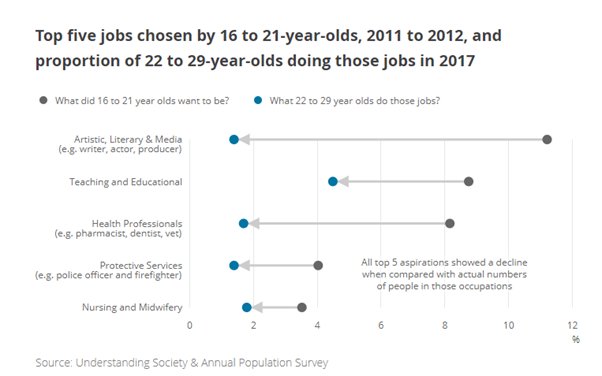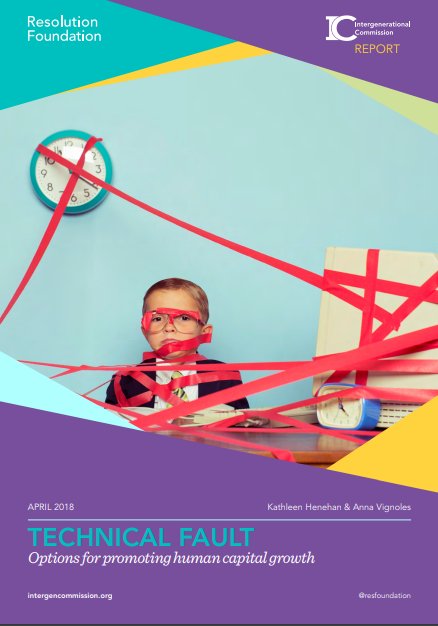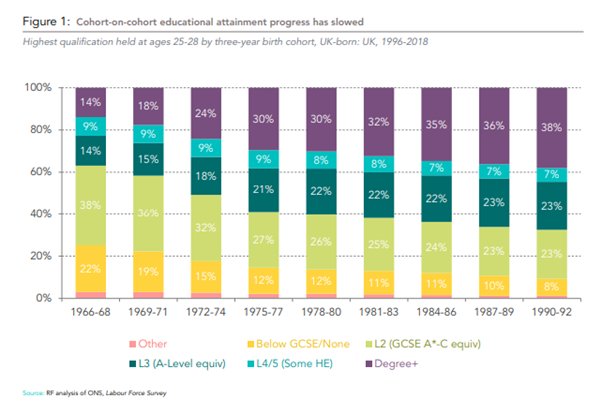
13 months on from the start of the Covid-19 crisis, overall unemployment has risen less than anticipated – thanks in large part to the furlough scheme. Yet the rise in unemployment that did transpire was unevenly distributed across age groups and among young people. 1/9
Since the start of the crisis, unemployment has ticked up across all age groups. But the rise was sharpest among young people, and specifically, 18-24s: between Spring & Autumn 2020, it rose from 11.5 to 13.6%, the largest quarter-on quarter-rise (18%) since at least 1992. 2/9 

Even among 16-24s, we find conditions have deteriorated most among those whose pre-pandemic employment position had already been weakest. Over the course of the crisis, unemployment rose from 25-34% (9pts) among Black young people and 10-13% (3pts) among white young people. 3/9 

Recent education leavers have also been badly affected: the unemployment rate among young people a year out of education rose by 4 points among both graduates and non-graduates between 2019 and 2020. 4/9 

Among those of out of education for 2 years or less, nearly one-in-four young people with an Asian background are unemployed, as are more than one-in-three Black young people. And these represent large increases on 2019. 5/9 

There is some good news, in that an increase in the number of young people in full-time study has helped to limit an even larger rise in unemployment – this is particularly the case for young people aged 16-17. 6/9 

But all in all, our research highlights the large sacrifice young people have made in their careers over the past year & the extent to which that’s been unevenly distributed among them. Going forward policy makers should reflect on the price younger generations have paid. 7/9
This includes helping the most disadvantaged 16-24s find routes into work; ensuring quality ed & training routes are in place; & working w/educators, employment support providers & businesses to tackle bias and discrimination in the hiring process and in career progression. 8/9
• • •
Missing some Tweet in this thread? You can try to
force a refresh







